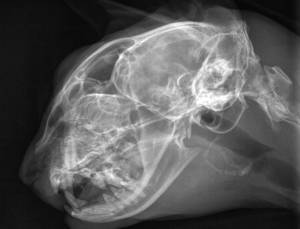Cats have an extremely developed hunting instinct. When a cat is inside the house all the time, it doesn’t socialize much and doesn’t have many opportunities to satisfy the needs of its predatory nature. Getting bored, or being in a playful mood, the cat begins to arrange a mock attack, often biting the owners legs. It should be noted that most owners do not respond to these attacks. This approach is erroneous, because the adult cat in this way learns such behavior as the norm, thereby causing pain to its owner.
The main reasons why a cat bites its owner’s legs
Improper socialization of the cat is a common reason why a cat bites its legs. This situation hides the inability of the animal to master the principles of social coexistence. This, in turn, may be the result of too early weaning of the cat from its mother, brothers and sisters.
If you don’t react to the cat biting its legs, this behavior becomes the norm for the cat
Early weaning of small kittens from their mothers is a fairly common practice that arises either from the unawareness of the kitten owner or from deliberate actions dictated by a desire to get rid of the cubs as soon as possible.
The problem is that in such situations the kittens have no opportunity to learn the principles of social coexistence from their mother.
Considered below are a few more reasons why a cat throws itself at the feet of its mistress.
Playful Attitude
One of the main reasons why a cat bites its legs is boredom. The owner should remember to diversify the animal’s environment, give it a toy, play together and carefully hide items that are not desirable to become the object of the pet’s interest.
A cat can have dozens of toys, but the excess can become boring. Therefore, you should hide some of them, and exhibit only some of them, and after some time change their places. In this case, the cat will treat the previously hidden toys as a completely new object and will again show interest in the object.
When the cat jumps up to bite, the owner can throw him special toys, previously frozen in the refrigerator, or ice cubes. Biting such cold materials will calm the cat.
Caution: This method is especially applicable to small kittens who have itchy teeth. After all, by biting their owner’s legs, they are trying to soothe the painful sensations in play.
Biting the feet is a way to get the owner’s attention when the cat wants to play. You should pay more attention to the cat and play with it more often, and then the problem will be solved.
Diseases
Why cats rush to their feet to bite becomes clear when it comes to a pet’s health. This is the worst case scenario when a cat’s brain disease, such as a tumor, is the cause of this behavior.
This type of pet health problem can turn the sweetest little kitten into a mad beast. Aggression caused by the disease does not appear all of a sudden. Changes happen slowly as the disease progresses.
It’s not just brain diseases that can negatively affect a cat’s behavior. Other diseases have similar effects, too. Especially those with it that are prolonged and debilitating.
When sick, the cat may be uncomfortable, showing aggression. The best solution in this case is a visit to the veterinarian, an accurate diagnosis and timely treatment.
Stress
It is not uncommon for a cat to try to bite its owner’s legs, due to the presence of stress.
There may be several reasons for stress:
- The cat bites because it feels pain. Its source is not always a disease. For example, the owner may accidentally step on the tail of the animal.
- Interestingly, the cat can also attack when the owner has done nothing wrong, just happened to be within reach of the cat’s teeth, which causes the desire to grab the feet of the mistress. Such a condition is caused by suffered aggression. In this case, the object of aggressive behavior is a factor: the animal, the person who caused it.
- The cat bites the mistress because he is afraid.
People who love cats probably find it hard to believe that a cat is afraid of them. Humans are much bigger and stronger than their pets, and these are enough reasons to run away from them.
Stress causes abnormal behavior in a cat
There are situations when a cat’s trust in its owner is undermined and it becomes afraid of him and bites from time to time.
A cat bites its owner because it wants to free itself from his excessive attention.
This is a fairly common reason. When a person begins to impose too much attention on the cat, it begins to chew its legs to show the owner where it belongs.
For the record, contrary to popular belief, cats are quite often stressed. And this is not positive at all for their health and behavior.
Puberty
During puberty, the behavior of cats and cats is characterized by difficulties in behavior. The cat or cat is constantly experiencing nervous tension, everything that flashes before their eyes can cause aggression. The animal constantly chews its legs and bites them in a state of irritation.
To combat this, it is enough to put the pet in a separate room. A more radical method is spaying.
How to wean a kitten from biting your legs and feet
When the cat attacks the feet of the owner/mistress when playing, it is necessary to immediately switch its attention to another object. You can stop this behavior by yelling loudly, or by spraying her with a flower sprinkler. This will make the cat feel uncomfortable and help to wean her off such shenanigans.
In order to wean your kitten from biting her legs, you should look for the causes of this behavior and eliminate them:
- the kitten needs a personal space, for example, a special house, a box – the absence of such is the cause of aggression to people;
- ignoring aggression;
- at the first signs of aggression offer a favorite toy as a distraction;
- sometimes a loud shout such as “Ew!”, ” No!” helps.
In especially neglected cases, the use of special scent-repellent sprays helps.
The best way is to wean a cat from biting its owner while the pet is still small.
Examples of how to wean an adult cat
Simple tips to follow when weaning an adult cat:
- Don’t rub the belly when scratching, just the chin or back of the head. If the animal exhibits a belly rub, it may mean it is assuming either a defensive or relaxed posture. But even the latter option can turn abruptly into aggression.
- All cat-child interactions in the house should be monitored. Children may bore pets, thinking of them as toys rather than living sensitive animals. It is not uncommon for kids to keep cats awake and they become aggressive as a result of fatigue.
One example of weaning is ignoring attempts to play. The principle is simple – the owner ignores bad behavior and encourages good behavior. As soon as the pet starts to make mischief, including teeth and claws, the owner immediately stops playing and leaves him. It is very likely that the animal will run after him, biting his legs. In this case, the owner should definitely shout at the cat, or even better, splash it with water.
Ignoring the cat’s bad behavior should be complete. One should not look at it afterwards or even talk to it. You should not even reproach the pet. For him the words of the owner, on the contrary, will become a reward for the bad behavior and an incentive to continue it.
Attention! You should ignore it until the pet calms down. Only then you can pet it and say a few warm words to it. That is, you need to show that the animal is interesting to the owner when it behaves well.
Why a cat purrs and bites at the same time
There are three main reasons for this behavior:
- The cat is “overexcited” and over-excited;
- The cat loves its owner very much – such behavior means love and attention from the pet;
- The cat demands attention, for example, wants to be scratched.
Why and why a cat may scratch
Among the main reasons why a cat scratches include:
- The owner himself accustomed her to it, not expressing displeasure when the animal behaved improperly;
- drawing attention to itself;
- lack of education of the cat since childhood;
- the result of aggression;
- health problems;
- past negative experiences;
- stress.
Of course, it is difficult to live under the same roof with a cat that often bites the mistress’s legs. Even occasional bites, if repeated regularly, do not bode well. The reasons for this behavior can vary. Fortunately, in most cases, the pet can be re-socialized and communication with it will quickly normalize.
If the owner wants to avoid undesirable cat behavior, he should follow three basic rules: pay attention to the cat’s body language, do not treat his hands as toys and do not use physical punishment on the cat. The most common mistake when a cat lunges at his feet is to try to push them away. The animal will bite them harder – this is a natural reaction because it senses that the victim will break free.





